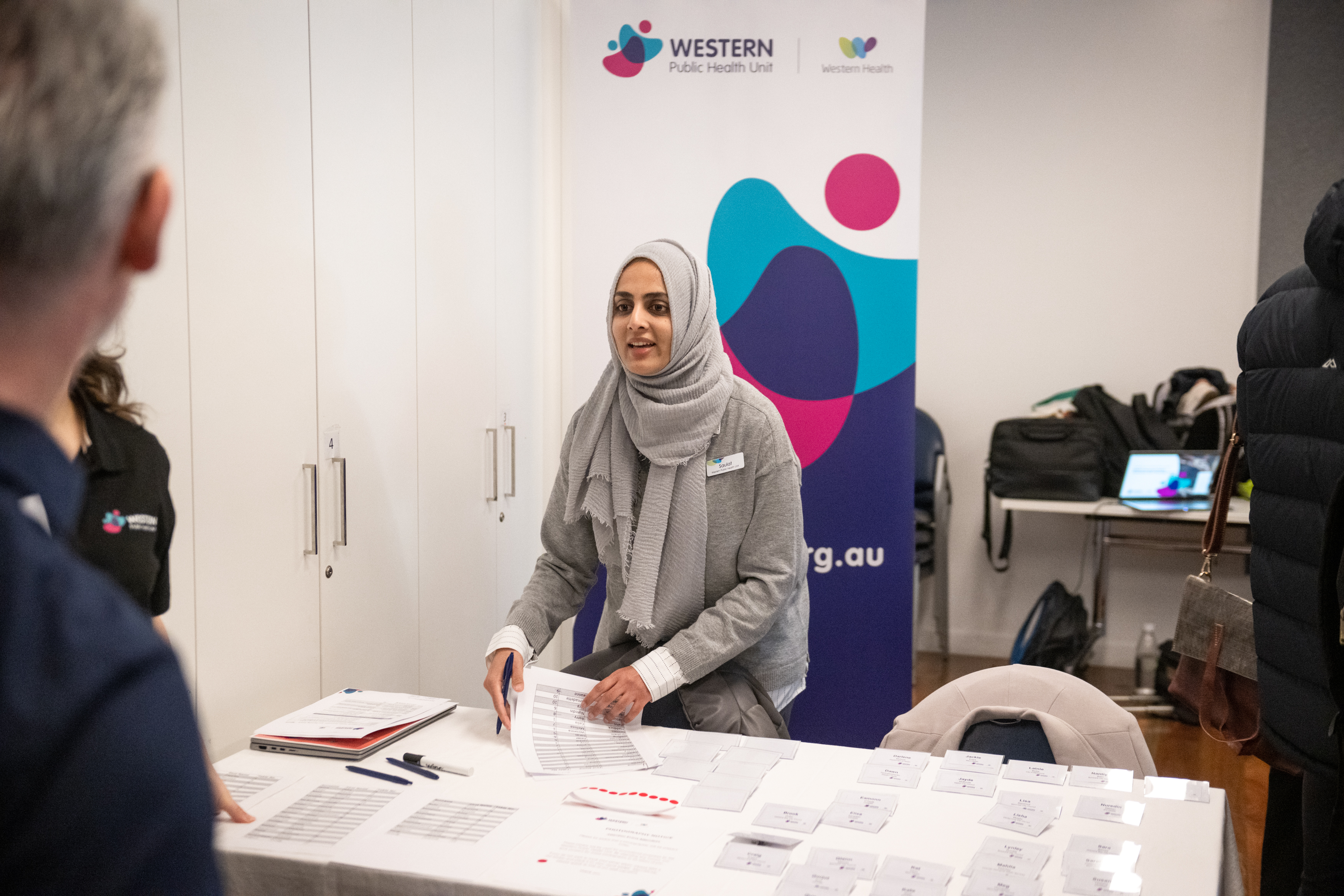Each year millions of Muslims observe Ramadan, which involves fasting for one month from dusk to dawn, prayer, charity and self-reflection.
Dr Saulat Khan, the Evaluation and Planning Lead in the Health Promotion team within the Western Public Health Unit (WPHU) shares with us what Ramadan means to her.
Dr Khan joined the health service during the height of COVID-19 and initially led a contact tracing team.
Now she supports WPHU’s role in preventing and managing chronic diseases and improving the health of the community in Melbourne’s western suburbs.
The mother of three moved to Australia from Pakistan 15 years ago. She is observing Ramadan between March 22 and April 21, 2023.
“Ramadan is a sacred and festive time of the year for Muslims,” Dr Khan said.
“For my family and I, it means we fast, which is the physical act of not eating or drinking food between dusk and dawn.
“It’s also a time of worship and reflection where we practice self-discipline by avoiding bad deeds, being our best selves and showing empathy and charity towards others in the community.
“It’s also a celebration of our faith and a time where we come together as a family and a community to strengthen our spiritual connection.

At the end of the fasting, we have Eid al-Fitr, it’s a big feast, a bit like Christmas for the Christian faith. The timing is determined by the Islamic lunar calendar- the sighting of the new moon.”
Dr Khan said she doesn’t find it difficult to fast, even when she is around people who are eating and drinking.
“Even though I usually love my tea and coffee, fasting does not bother me at all. Once I have made my intention for the day, I find it quite easy.
“When I was a doctor in Pakistan, I was often around patients who weren’t fasting because there are certain reasons why you don’t observe fasting, such as being sick or pregnant, so it’s just part of the process. It can be a little different in the southern hemisphere when it’s hot, but it’s quite incredible to test our physical boundaries and practice self-control, especially when there is a higher purpose.”
Dr Khan was delighted when her WPHU colleagues held a Feast for Freedom, where people share food to raise funds for the Asylum Seeker Resource Centre (ASRC), an inclusive event.
“They made sure there were vegetarian, halal and gluten-free options, and for colleagues who were observing Ramadan, they had take-away boxes, so they could enjoy the food in their evening meal.
“I brought a chickpea salad and a chutney made by my mother-in-law, a favourite Ramadan dish to share with my colleagues. We raised almost $1000 for ASRC.”
Dr Khan said she was proud of her colleagues, who are culturally diverse, aware and inclusive. She encouraged others to consider how they could support their colleagues, friends and family members observing Ramadan.
Six tips for people seeking ways to support their Muslim colleagues from the Victorian Multicultural Commission
1. Greet them with Salam or say Ramadan Mubarak
2. Do not ask invasive questions especially if you notice they are not fasting
3. You can eat and drink in front of a Muslim, just don’t ask them out for coffee or lunch
4. Be aware of sunset time and try not to schedule things in the afternoon
5. Schedule iftar dinners where you can give dates/fruits or even cake to have at sunset together
6. Be kind and considerate as fasting affects everyone differently and many people may experience low levels of energy
